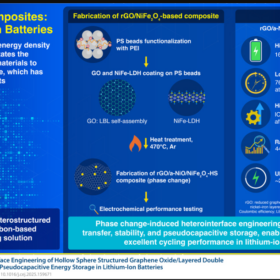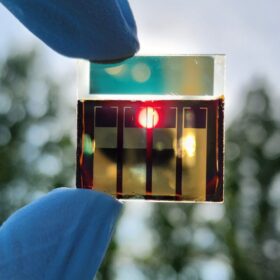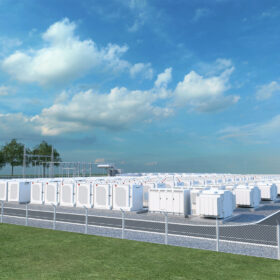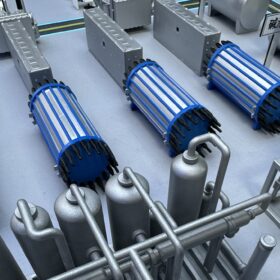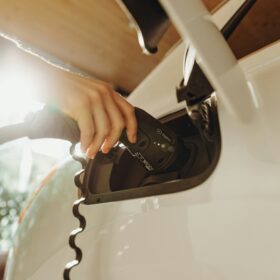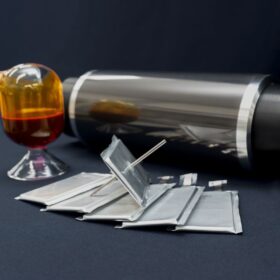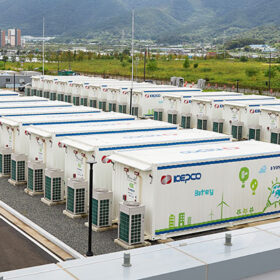South Korean battery breakthrough using hybrid anode material
Researchers at two South Korean universities have collaborated to achieve a breakthrough in lithium-ion battery technology by developing a novel hybrid anode material.
Korean researchers achieve world record efficiency of 23.64% for flexible perovskite-CIGS tandem solar cell
Scientists at the Korea Institute of Energy Research claim to have achieved the highest efficiency ever reported for a perovskite-CIGS tandem solar cell with flexible, lightweight architecture. The device was also found to achieve “excellent” durability.
ClearVue inks South Korean distribution and deployment agreements
Western Australia-headquartered smart building materials company ClearVue Technologies has established a partnership with South Korean solar energy company Sinrok Solar Energy to distribute and deploy ClearVue’s solar glazing products, including rights for fencing and road barrier applications.
Breakthrough research boosts Li-ion battery stability, efficiency and density
South Korean scientists have developed a breakthrough lithium-ion battery technology by modifying the LNMO cathodes that enhances stability and efficiency, boosts battery lifespan, and energy density of Li-ion batteries.
Testing shows BIPV using patterned glass performs better than expected
Scientists have compared conventional PV modules to self-made BIPV panels with thicker, patterned glass. They tested them both under standard conditions and outdoors under Korean summer conditions. Yield was found to be only 0.5% lower in the textured BIPV module.
Australia inks deal with South Korea to boost hydrogen supply chains
Australia and the Republic of Korea (ROK) have signed a new bilateral agreement to step up climate and energy cooperation and build new clean energy industries and trade opportunities.
Breakthrough EV battery testing improves stability and performance
South Korean Advanced Institute of Science and Technology has developed technology for the precise diagnosis of electric vehicle batteries using small currents that can improve the stability and performance of high-capacity batteries.
LG Chem develops material capable of suppressing thermal runaway in batteries
LG Chem has announced that its Platform Technology research and development team has developed a temperature-responsive material that is described as capable of suppressing thermal runaway.
South Korea’s biggest battery comes online
Korean utility KEPCO has completed a 978 MW battery project that is billed as Asia’s largest battery energy storage system for grid stabilisation purposes.
International players progress plans for massive WA green energy hub
An international consortium planning to build a 50 GW solar-and-wind energy hub in Australia’s southwest has announced it will partner with Korea’s largest electricity utility to advance the development of what would be one of the largest green hydrogen production facilities in the world.
